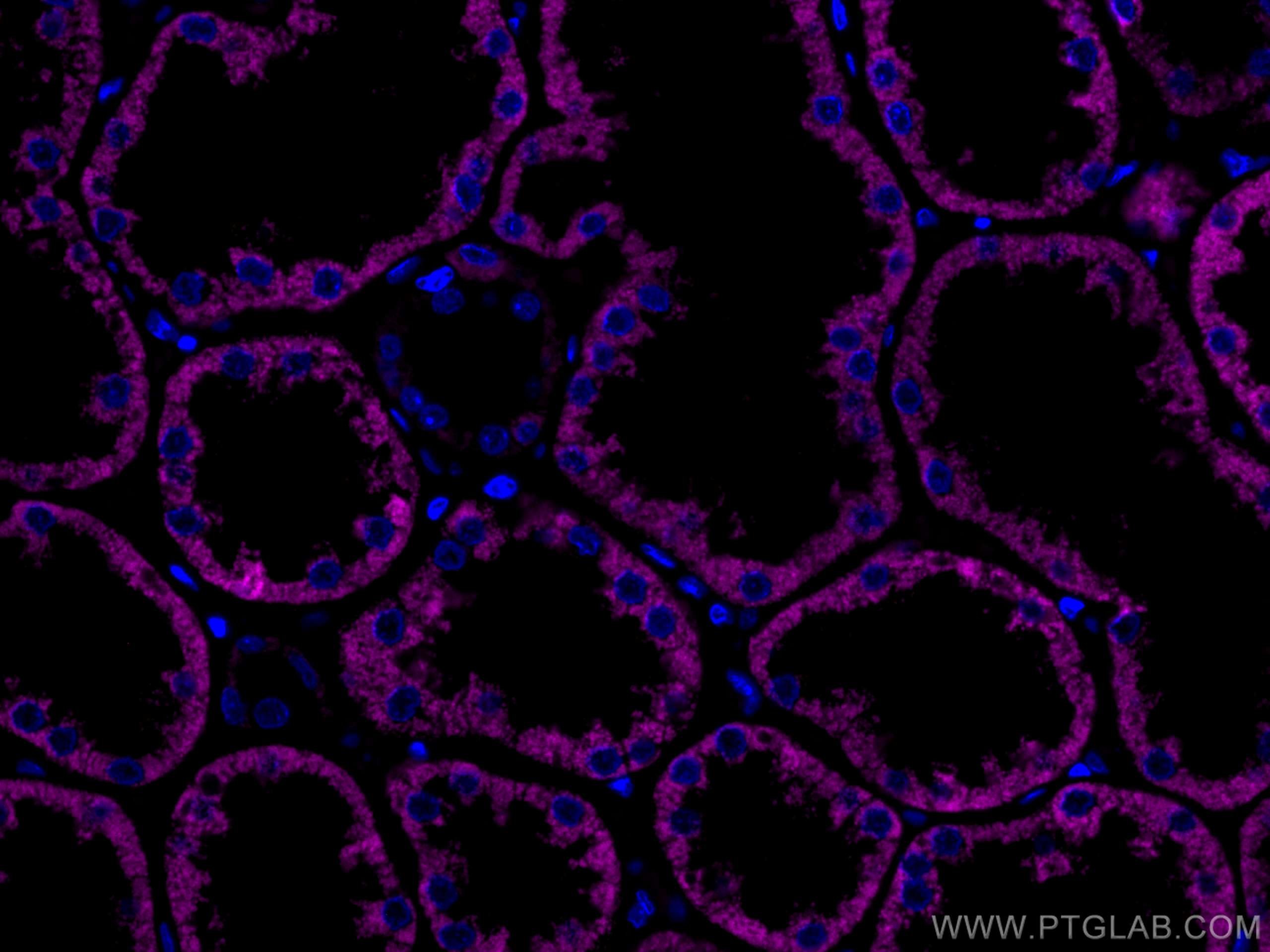Tested Applications
| Positive IF-P detected in | human kidney tissue |
Recommended dilution
| Application | Dilution |
|---|---|
| Immunofluorescence (IF)-P | IF-P : 1:50-1:500 |
| It is recommended that this reagent should be titrated in each testing system to obtain optimal results. | |
| Sample-dependent, Check data in validation data gallery. | |
Product Information
CL647-67791 targets AIF in IF-P applications and shows reactivity with Human samples.
| Tested Reactivity | Human |
| Host / Isotype | Mouse / IgG2a |
| Class | Monoclonal |
| Type | Antibody |
| Immunogen |
CatNo: Ag12400 Product name: Recombinant human AIF protein Source: e coli.-derived, PET28a Tag: 6*His Domain: 259-609 aa of BC111065 Sequence: TPRSLSAIDRAGAEVKSRTTLFRKIGDFRSLEKISREVKSITIIGGGFLGSELACALGRKARALGTEVIQLFPEKGNMGKILPEYLSNWTMEKVRREGVKVMPNAIVQSVGVSSGKLLIKLKDGRKVETDHIVAAVGLEPNVELAKTGGLEIDSDFGGFRVNAELQARSNIWVAGDAACFYDIKLGRRRVEHHDHAVVSGRLAGENMTGAAKPYWHQSMFWSDLGPDVGYEAIGLVDSSLPTVGVFAKATAQDNPKSATEQSGTGIRSESETESEASEITIPPSTPAVPQAPVQGEDYGKGVIFYLRDKVVVGIVLWNIFNRMPIARKIIKDGEQHEDLNEVAKLFNIHED Predict reactive species |
| Full Name | apoptosis-inducing factor, mitochondrion-associated, 1 |
| Calculated Molecular Weight | 609 aa, 66 kDa |
| Observed Molecular Weight | 67 kDa, 57 kDa |
| GenBank Accession Number | BC111065 |
| Gene Symbol | AIF |
| Gene ID (NCBI) | 9131 |
| RRID | AB_2920311 |
| Conjugate | CoraLite® Plus 647 Fluorescent Dye |
| Excitation/Emission Maxima Wavelengths | 654 nm / 674 nm |
| Form | Liquid |
| Purification Method | Protein A purification |
| UNIPROT ID | O95831 |
| Storage Buffer | PBS with 50% glycerol, 0.05% Proclin300, 0.5% BSA, pH 7.3. |
| Storage Conditions | Store at -20°C. Avoid exposure to light. Stable for one year after shipment. Aliquoting is unnecessary for -20oC storage. |
Background Information
Apoptosis-inducing factor (AIF) is one of the mitochondrial proteins to be released into the cytosol during apoptosis, and it is discovered as the first protein that regulates caspase-independent apoptosis(PMID:20494118). AIF is encoded as a 67 kDa protein that contains a mitochondrial localization signal (MLS) in the N-terminus.It is cleaved from the 62 kDa to the 57 kDa form following ischemic injury and translocated from the mitochondria to the nucleus in a calpain-dependent manner(PMID:19332058).
Protocols
| Product Specific Protocols | |
|---|---|
| IF protocol for CL Plus 647 AIF antibody CL647-67791 | Download protocol |
| Standard Protocols | |
|---|---|
| Click here to view our Standard Protocols |




